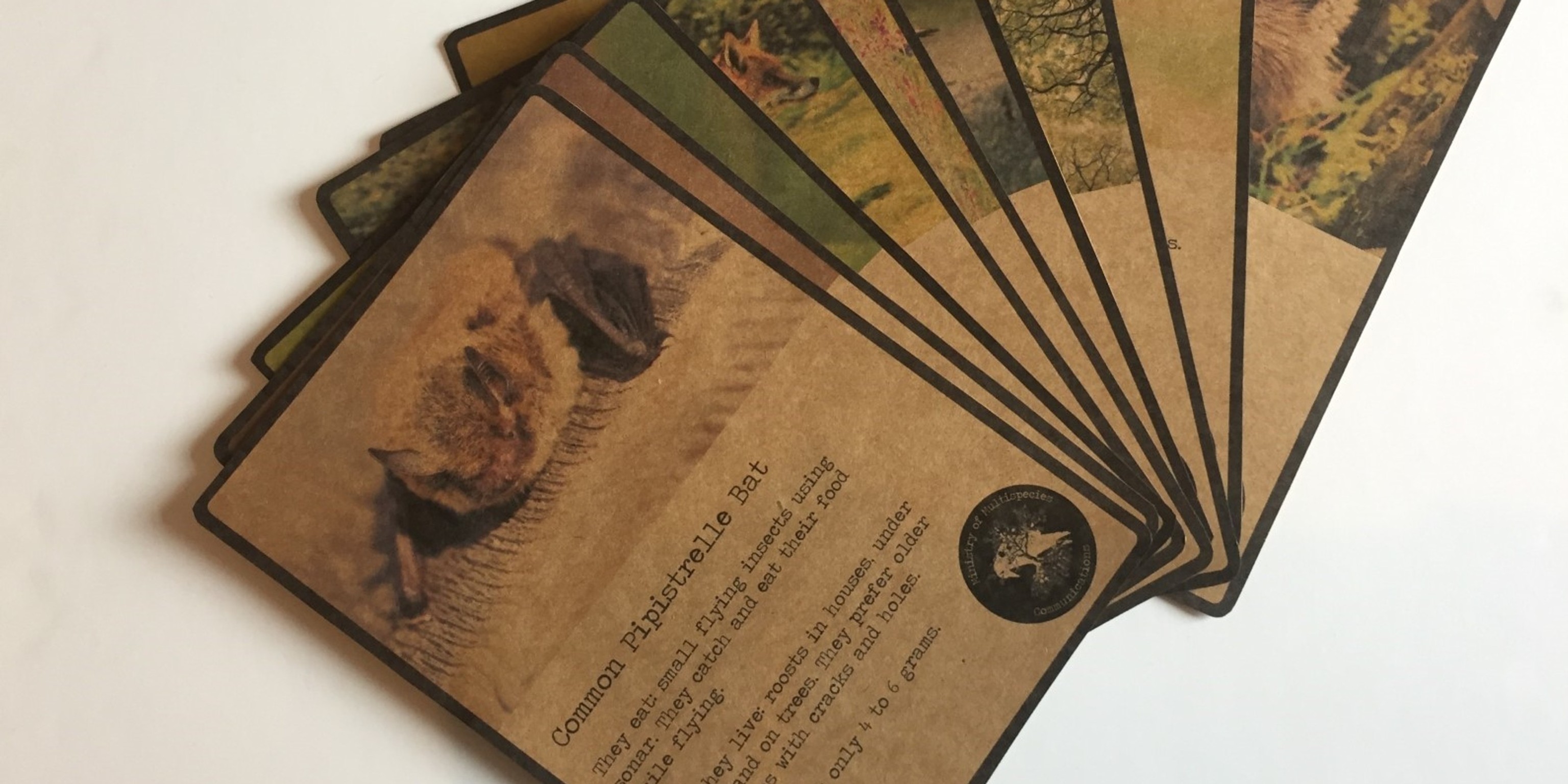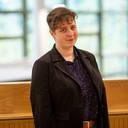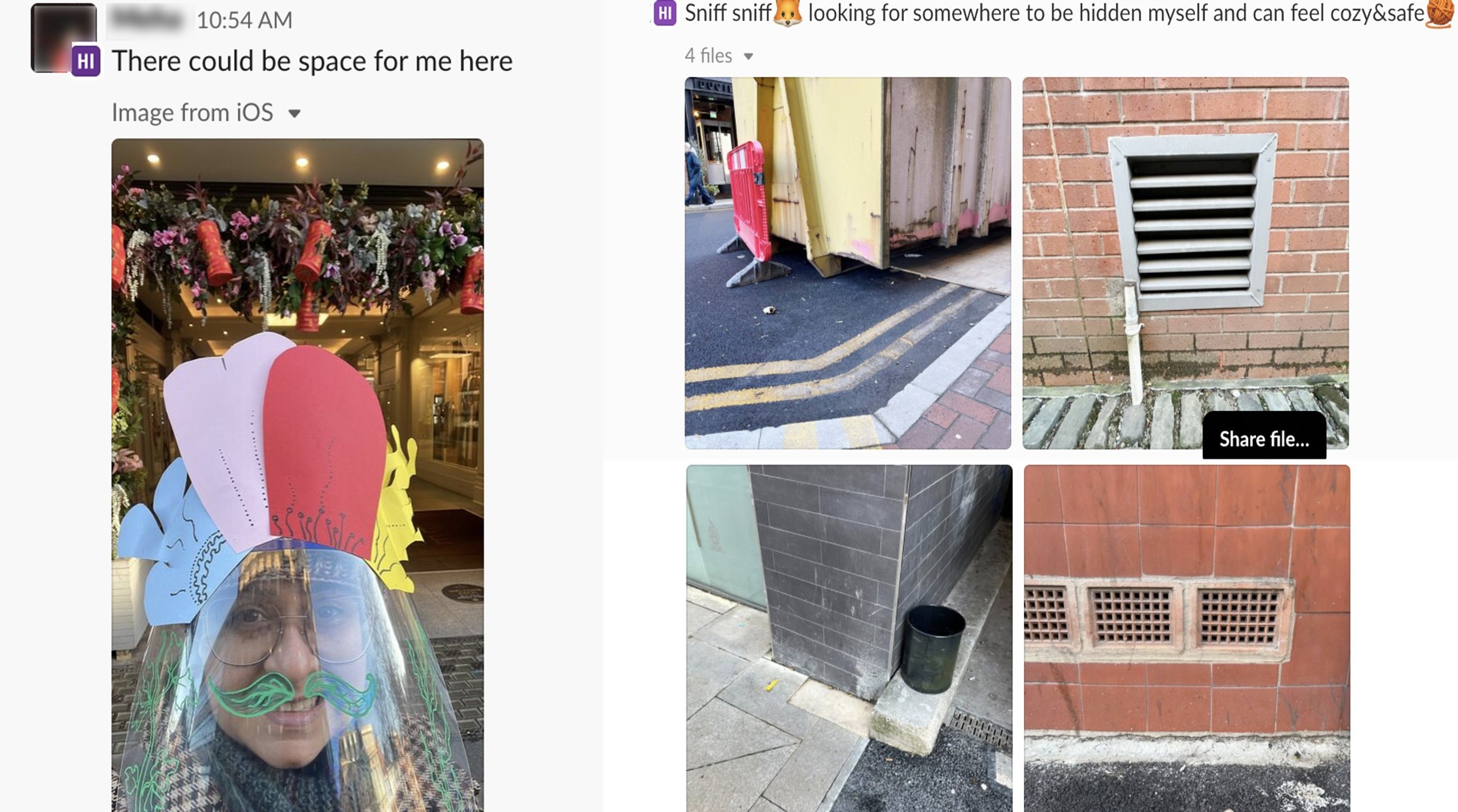
Ministry of Multispecies Communication at Hyper Island
Digital Sustainability


Collaborators Hyper Island
Abstract
The Ministry of Multispecies Communications (MoMC) was created to help people explore urban spaces and digital interactions with other species who also inhabit our cities.
Method
We developed a participatory learning experience that weaves together creative and embodied multispecies methods of inquiry into Hyper Island's Digital Management and Digital Experience Design postgraduate course
Takeaways
The sessions were designed to help students move beyond designing just for people and sensitise them to other species co-habiting the city.
Throughout 2021 and 2022, the Ministry of Multispecies Communications (MoMC), led by Open Lab’s Rachel Clarke, has continued to collaborate with Hyper Island (HI). Hyper Island is a global digital creative business school that works with industry and individuals on life-long learning through doing projects.
Working together we have developed a participatory learning experience that weaves together creative and embodied multispecies methods of inquiry into the Digital Management and Digital Experience Design postgraduate course. While this presented several challenges during lockdown, it also created opportunities to open up alternative methods of engagement for the students and their experiential learning journey.
The Ministry of Multispecies Communications (MoMC) began as a fictional government organisation established by Rachel in 2018. MoMC was created to help people explore urban spaces and digital interactions with other species who also inhabit our cities. With growing concerns of biodiversity loss, ongoing impacts of climate change and an anticipated increase in urban populations, the Ministry starts with recruitment to a training programme. This is followed by the sharing of a manual with a scenario from the near future where creatures have fled the city as they can no longer flourish.
Through a series of making, sharing and walking activities, people are invited to experience the city from the perspective of another species as part of a collective masked walk. Participants are then encouraged to share their ideas about their preferred needs and desires while also reflecting on the potential to make use of urban data networks through a group discussion. Over the past two years this has mostly taken place online where people have walked in their own neighbourhoods in small groups and shared images of their chosen species and areas of their city that could be improved.
Early in 2021 MoMC was invited by the HI hub in Manchester to co-deliver a ‘more-than-human (de)centred design’ activity to activate students’ critical engagement in design thinking. Crew21 (#Crew21MCR) - a mix of Digital Management and Digital Experience Design postgraduate students - were joined by MoMC and PhD candidate Hazel Dixon from the Digital Civics, Centre for Doctoral Training at Open Lab. Students at HI regularly interact via Slack and Zoom and to widen participation.
MoMC started using these platforms to encourage more self-directed discovery of local places and exploration of the city from the perspective of different urban species. The session was designed to help students move beyond designing just for people and sensitise them to other species co-habiting the city. It was also an opportunity to experience alternative methods to re-engage all the senses after lockdown in hibernation. Hyper Island’s courses while innovative, like many design curricula, remains focussed on human centred design methodologies. Programme Leader Dr Rebecca Taylor had experienced the Ministry in the summer of 2020, as part of the Open Lab summer festival, and wanted to explore how this method of inquiring in the world might benefit students.

This year Rachel and Hazel ran another Ministry training session with a fresh cohort of students (#Crew22MCR), to lay the foundation for their project briefs with the National Trust who are developing new urban projects in Manchester as part of a project to find the future for the Castlefield Viaduct.
“Working with Rachel and Hazel brings me such hope and joy for a future where postgraduate design, tech and business education can and absolutely should embrace and welcome in a more-than-human perspective into industry-led pedagogy. By weaving MoMC and this creative embodied method as a way of learning by doing and exploring has evidently inspired and challenged perspectives. Stewarding minds in this way awakens a special something in students - feedback clearly evidences that empathy is activated. It’s really brilliant to see this kind of sense-making in action throughout the whole MA programme - I see student’s return to their experiences of MoMC and channel it into their critical engagement when defining what design means to them and even in taking design decisions.”
Dr Rebecca Taylor, Hyper Island Programme Leader